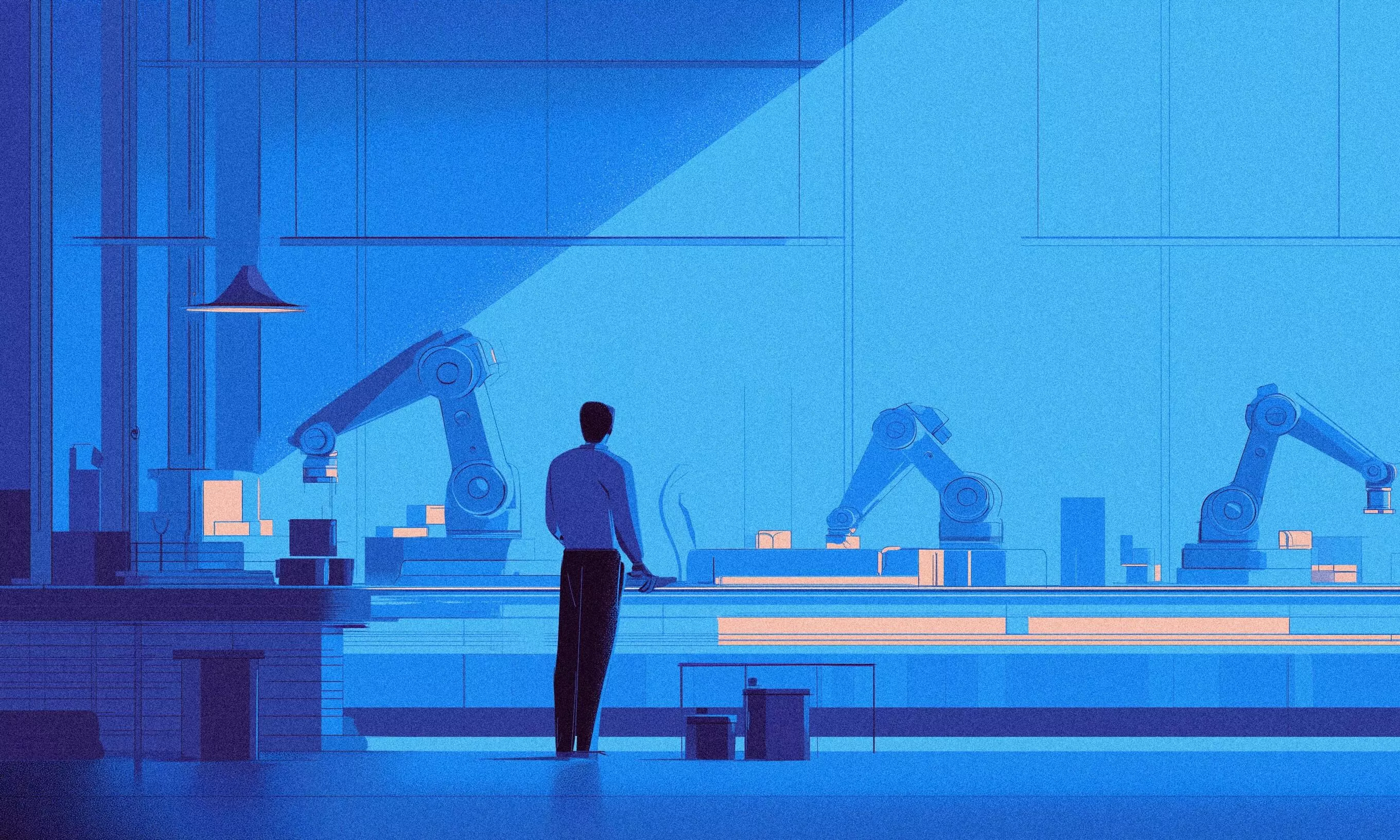Tech entrepreneur and AI agent whisperer, Ivan Burazin, appears in our event series Delivered to discuss how to prepare your business for the agentic AI revolution.
AI is no longer optional, it’s a baseline expectation. That was the message behind a now-famous leaked memo from Shopify’s CEO, and it’s a sentiment echoing across industries. But just as businesses began adapting to generative AI, along came their smarter, more autonomous cousins: AI agents.
Some businesses are already seeing major productivity gains, while others are simply burning money. The difference lies in knowing where AI agents can add value.
Appearing as a guest on our show Delivered, tech entrepreneur and AI agent expert Ivan Burazin, broke down how AI agents work, where they truly add value, and how to avoid the hype.
From passive assistants to true teammates
For a while, generative AI felt like magic: tools that could summarize, translate, draft, and debug. But at its core, generative AI is reactive. You give it a prompt, and it responds accordingly. AI agents, on the other hand, don’t just respond to prompts; they act on behalf of the user.
The key distinction between generative and agentic AI lies in understanding the roles of models vs. agents. A large language model, like GPT-4, is the brain. It processes information and generates responses. But on its own, the model is inert. It doesn’t have an interface, memory, or the ability to interact with external tools. That’s where agents come in.
An agent is the piece of software that acts as the bridge between the user, the model, and any external tool. When you use ChatGPT in a browser or mobile app, that interface is the agent. It handles user input, sends prompts to the model hosted elsewhere, receives responses, and presents them back to you. But more advanced agents go further: they invoke external tools to enhance the model’s capabilities.
Take ChatGPT’s “Operator” mode, which can book a restaurant reservation on your behalf. That’s not just a model responding to a prompt. It’s the agent invoking a browser tool, navigating a site, and performing an action. Without tools, an agent is like an employee with no computer: technically capable, but unable to do much. With tools, it becomes useful. And with context and autonomy, it becomes powerful. This is where AI shifts from being just a passive assistant to something closer to a true digital teammate, explains Ivan.
Are AI agents ready to take over, or still in training?
With all the media headlines proclaiming the end of every profession as we know it, it’s easy to believe that AI agents are ready to replace humans. Remember those viral “Stop hiring humans” billboards? They came from a startup called Artisan, which claimed its CEO was stepping down to let an AI agent take over. A catchy PR stunt. But according to Ivan, we’re not quite there yet.
AI agents can be impressive, especially in demos where everything is perfectly controlled. When these agents are exposed to the unpredictable, messy real world, their limitations become apparent.
Right now, agents are great at simple, repetitive tasks with clear rules and predictable outcomes. But ask them to handle something vague or complex, and they’ll quickly get lost.
Ivan shares a simple example: asking an agent to organize a meetup in a foreign city without providing any specifics, like the date, venue, or number of guests, will likely lead to failure. But give it exact instructions, and it can execute flawlessly. For now, the narrower the task, the more effective the agent.
Another important limitation? Agents can’t create anything truly new. They can replicate, remix, and automate, but not invent. An AI can build you a clone of Airbnb, but only because Airbnb already exists, says Ivan.
Then there’s the human element. In a world where every competitor has an AI-powered sales rep spamming inboxes, the person who actually shows up, makes eye contact, and builds a real relationship? That’s the one who stands out. Whether it’s sales, therapy, or hospitality, human connection still matters, and always will.
Ultimately, the real value of agents lies in augmenting human teams, not replacing them. Let them handle the boring, repetitive stuff, so your people can focus on what humans do best: big-picture thinking, creativity, and decisions that actually move the needle.
The future of software is agent-native
We’re currently in a transitional phase where most companies are adding AI to existing tools, hoping for smarter results. In reality, most of today’s AI integrations are just chatbots bolted onto SaaS products, explains Ivan. But the real opportunity lies in building agent-native products — software designed from the ground up to let AI agents take action on behalf of users.
Just like Uber and DoorDash only became possible once smartphones with GPS hit the mainstream, agent-native apps will thrive in a world where software can not only respond but act.
The timing is right. According to Y Combinator, 37% of startups in their latest cohort are building with agents. And since the winners in this space don’t exist yet, there’s a massive opportunity for companies to claim leadership in their domain by being early builders.
The fundamental thing that people overlook is that you can actually build an agent. There are tools, frameworks, and companies like Infinum that can help you do this.
IVAN BURAZIN, CEO & CO-FOUNDER, DAYTONA
Getting your organization AI-ready
When it comes to preparing your business for AI agents, there’s no one-size-fits-all solution or universal blueprint, because the rules are still being written. As Ivan explains, the AI landscape is evolving too rapidly for any one vendor or consultant to have all the answers.
Instead of waiting for a perfect product or roadmap, companies need to stay actively informed, experiment with AI tools, and pay close attention to how the field is progressing. In industries further removed from Silicon Valley, the impact of AI agents may not have reached day-to-day operations yet, but it will.
The key is to avoid the trap of dismissing immature tools too early, because what doesn’t work today might be a game-changer in three months. And if your competitors embrace that shift before you do, the productivity gap could widen fast, warns Ivan.
For more insights on where we stand with AI agents and where we are heading, watch or listen to the full conversation with Ivan. And if you’re looking to build and AI product and need expert support, check out our AI business solutions page.










